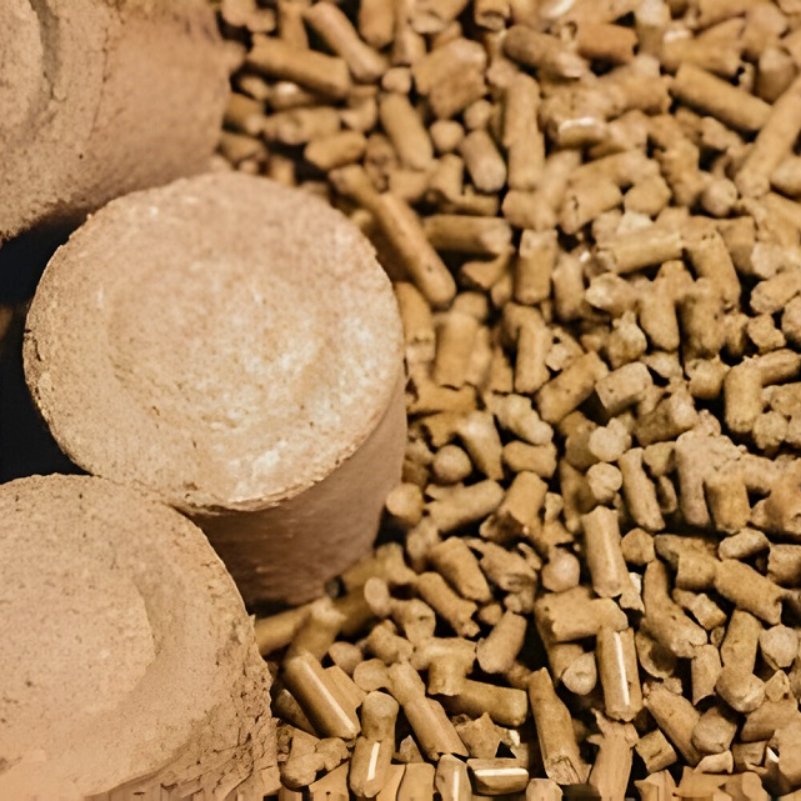The demand for eco-friendly fuel is rising. Businesses are now turning to briquettes machines for clean energy. These machines turn waste into useful fuel.
But did you know there are different types of briquettes machines? Each type has its own use. In this article, we’ll explore the various kinds of briquettes machines available today and how they help in different industries.
What Is a Briquettes Machine?
A briquettes machine compresses raw materials like sawdust, paper waste, or agricultural leftovers into compact fuel blocks. These blocks are called briquettes.
Briquettes burn longer and produce less smoke than raw waste. That’s why they are popular in industries, homes, and farms.
Different machines suit different needs. Let’s look at each type.
1. Screw Briquettes Machine
Overview
The screw briquettes machine uses a screw shaft to push raw materials into a mold. The pressure and friction heat up the material, binding it into solid briquettes.
Best For
Making charcoal briquettes
Wood and biomass materials
Small to medium-scale production
Advantages
Makes uniform, high-density briquettes
Produces hollow briquettes, ideal for airflow and better burning
Can work with carbonization processes
Limitations
Needs regular maintenance of the screw
Works better with fine, dry materials
2. Piston Press Briquettes Machine
Overview
This machine uses a piston to compress raw materials in a cylinder. It creates solid and dense briquettes without using heat.
Best For
Large-scale industrial use
Agricultural waste like rice husk, bagasse, groundnut shell
Advantages
High production output
Simple design with fewer moving parts
Lower power usage than screw types
Limitations
Briquettes may crack if moisture is not controlled
Requires uniform particle size in the input
3. Hydraulic Briquettes Machine
Overview
Hydraulic pressure is used to shape the briquettes. These machines are slower but offer precise control.
Best For
Small-scale use or lab testing
Paper waste, plastic waste, and fine powder materials
Advantages
Quiet operation
Consistent pressure and shape
Low wear and tear
Limitations
Slow production speed
High initial cost compared to output
4. Roller Press Briquettes Machine
Overview
This machine uses two rollers to press materials into briquette shapes. The rollers have grooves that shape the briquettes.
Best For
Industrial coal briquetting
Mineral powder or dust
Dry, powdery materials
Advantages
High pressure, good for hard materials
Variety of briquette shapes possible
Continuous working system
Limitations
Rollers need to be replaced regularly
High maintenance for heavy-duty use
5. Manual Briquettes Machine
Overview
These machines are hand-operated. They are simple and don’t use electricity.
Best For
Small villages and rural areas
Training and demonstration purposes
Households and farms
Advantages
Low cost
Easy to use
No electricity needed
Limitations
Very low output
Labour intensive
Choosing the Right Briquettes Machine
Choosing the right machine depends on a few factors:
Type of raw material: Fine powder, coarse husk, or biomass
Production scale: Household, small business, or large industry
Budget: Manual machines are cheap. Hydraulic ones cost more.
End use: For home heating, industrial fuel, or export?
Assess your needs before buying a machine. Also, consider after-sales service and spare parts availability.
Applications of Briquettes Machines
Industrial fuel in cement, food, and textile plants
Household use for cooking and heating
Waste management by turning trash into treasure
Commercial production of biofuel for sale
No matter the type, all briquettes machines help reduce waste and pollution.
Benefits of Using Briquettes Machines
Eco-friendly: Low smoke, low carbon footprint
Cost-effective: Turns waste into valuable fuel
Space-saving: Briquettes are easy to store and transport
Supports green goals: Fits into sustainable manufacturing
Conclusion
There is no one-size-fits-all solution when it comes to briquettes machines. Each type serves a specific need. Whether you are a small business or a large factory, there’s a briquettes machine for you.
Understanding the types helps in making better choices. Invest in the right machine and move one step closer to a cleaner and greener future.

